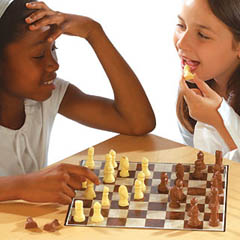The Catholic Primate Archbishop Sean Brady has written a stimulating article (delivered as a speech recently) in today’s Irish Times. Many of his themes and the issues he considers are quite germane to Irish life today – stress, suicide, substance abuse, the love of consumerism and wealth. While I applaud the fact that someone is attempting to address these difficult issues in a thoughtful and constructive manner, I believe that his answers are utterly out of touch and inadequate.
The central message of his homily is that accepting God’s plan will solve all our problems:
the fundamental call of the Christian disciple remains the same in every age – to say “Fiat, voluntas tua” – “Be it done unto me according to thy Word!”
He correctly identifies a problem but incorrectly diagnoses the reason:
The land of saints and scholars has become the land of stocks and shares, of financial success and security. Tragically, it has also become a land of increasing stress and substance abuse. And all of this has occurred as the external practices of faith has declined.
The fact that two things are inversely correlated over time does not necessarily mean that they are related. I am determinedly against the notion that the decline of religion has led to the increase in stress and substance abuse. Not only does this argument ignore the rise and rise of other factors in our culture that might be contributing to stress – television, long commuting times, emigration, pollution, the changing gender roles of women and men, smaller family sizes, globalization, new technologies – but it ignores the negative effects of religion that have now been eliminated. In other words, declining religious observance might actually be contributing to a fall in stress levels, but it is masked by other factors which greatly outweigh it. But that is not really my main point: it is rather, that it is always the lazy assumption of religious people that a decline in religion is at the heart of society’s problems, and they steadfastly ignore the other possible factors.
The Archbishop further says:
People are seeking to control their future rather than entrust their future to God’s promise and plan.
Seeking to control one’s future is not appropriate, apparently, because:
The result is an increasing culture of insecurity and fear. What often appears on the outside to be a culture of confidence and certainty in Ireland is in reality a facade. More and more Irish people are becoming stressed out trying to bring a security to their lives that only trust in God can give. They are trying to control a future that is ultimately in God’s hands.
Dramatically, he quotes from the Catholic Cathecism:
“A sound Christian attitude consists in putting oneself confidently into the hands of Providence for whatever concerns the future, and giving up all unhealthy curiosity about it”
At the heart of this ludicrous argument lies a dire fatalism that must be soundly rejected. Firstly, it is deeply contentious whether there is in fact a God or not. Even if there were, it is not apparent that His will is manifested in human affairs to an extent that it has an impact on individual lives. Certainly, were I trying to purchase a house next week, I wouldn’t sit around and wait for God to rustle up the deposit for me.
Secondly, the “unhealthy curiosity” about the future is actually to be applauded. It is our human ability to be conscious of a future, to plan for it, and to change our world to make it better, that reveals our greatest strengths. “Unhealthy curiosity” is one of those inane platitudes from an all-dominating, paternalistic church that just infuriates me.
The Archbishop seems to suggest that we adopt a position of fatalism, or waiting for God’s plan to unveil itself to us and for us to accept whatever joy or pain he delivers. I think this is the worst form of religious arrogance and is incredibly bad advice. It encourages lazy thinking and the acceptance of poverty and ignorance. I believe that most things are changeable by the sustained application of human willpower, determination, and reason. We can and must improve our circumstances, both individually and as a society. I will not accept that things just happen because of the capricious will of some unearthly God. Even believers should see through this gross and stupid doctrine.
He further elaborates his theme by pointing out some home truths about modern Ireland:
You see it in our fascination with fast cars and consumption of the latest and the best. Yet look at the impact on our climate, on the beauty of our environment, on the sustainability of our world. You see it in our fascination with image and sexual fulfilment. Yet look at the consequences in terms of the stress and strain of keeping up with fashion, the increase in eating disorders, and most tragically of all, of suicide among the young.
I agree broadly with his description of a society that seems enthralled to consumerism and the negative impact this is having on our climate, environment, and psyches. It is the common complaint of the negative effect of the Celtic Tiger phenomenon. But his diagnosis is disturbing:
The truth is that more and more Irish people are becoming trapped by the illusion of being able to control their future completely. They are putting their trust in an illusion, in things that will not satisfy.
I disagree. I think the problem is more complex than a lack of moral substance and lack of holistic thinking, although this is part of it. It is outside the bounds of this posting to discuss the issue in-depth, but I do take issue with the simplistic account given by the Archbishop.
He then tackles the issue of “new age” superstition:
One of the most subtle but disturbing signs of this underlying fear in Irish life is the increasing reliance of people on practices which claim to “unveil” the future. Consulting horoscopes, astrology, palm reading, tarot cards, recourse to clairvoyance and mediums conceal a desire for power over time and a lack of trust in God’s providence. They are the new Irish superstition. Those who put their trust in them or take them seriously are colluding with an illusion, promoting a fiction.
I couldn’t agree more with the Archbishop on this one. I fully endorse his opinion that these are the “new Irish superstition”. Unfortunately, I would go further, and say that religion – specifically his religion – was the old Irish superstition. Those who put their trust in an omnipotent God or take Roman Catholicism seriously are colluding with an illusion, promoting a fiction. For every horoscope-wielding new-ager, there is a rosary-bead wearing Catholic. For every plam reader or medium, a priest, for every tarot card, a candle lit for the saints. Roman Catholicism is paganism dressed up in flimsy monotheistic clothes. Easter is a pagan spring festival par excellence, Christmas celebrates the birth of a new year, while the saints are glorified polytheistic gods. Share your sins with a priest and seek absolution; or consult a palm reader to divine your future. Take your pick of superstition.
Catholicism revels in the lowest form of new-age superstition imaginable: the Patron saints. Want a long life? Pray to St. Peter. Selling your home, just offer a quick prayer to St. Joseph. Quick back and sides? Hairdressers can pray to St. Martin de Porres, apparently.
The Archbishop lays it on the line, the solution to all of our problems:
Mary abandoned herself to God’s will. She did not ask the angel to tell her what the future would hold. She simply trusted God’s promise minute by minute, day by day. She trusted in the midst of the joys and her sufferings. This is the attitude of the blessed. This is the attitude every disciple of Christ is called to imitate. It is the attitude of a perfect love, a love sustained by the Eucharist and prayer, a love which casts out all fear. This is the perfect love shown by Mary.
So, the answer to all modern ills is to “abandon” ourselves to God’s will. And what is God’s will, pray tell? The answer, according to the Archbishop, is “For all its human imperfections, it is the church which still holds the answer to these questions.” So, the Church holds the answers: abandon your will and ask the Church to intercede on your behalf.
Let me see now: the very Church that opposes the creation of female priests based on outmoded concepts of gender; the Church that imposes celibacy on its priests out of some fear of sexuality; the very Church that haboured the peodophiles in its midst for many years; the self-same Church that thought the earth was flat and condemned Galileo for suggesting otherwise? This very same Church wishes you to abandon yourself to its interpretation of God’s will, to lay down all plans for the future and instead to trust in God to get you out of a fix.
No, thanks. I prefer to trust in my human intelligence, reason, and sense of morality. I prefer to trust in my friends, my family, my colleagues, and my state, imperfect though all of that is. It’s all I have. I intend planning for a better future by working and thinking and getting educated, by making appropriate financial and insurance arrangements, by living honestly and fearlessly.
The opposite of religion is not fear. It is self-confidence and humanity. It is humanism, tolerance, openness to new ideas. It is liberating and it unlocks the full potential of the human spirit. It behoves us all to reject the superstitious nonsense spouted by out of date institutions like the Roman Catholic Church. The Archbishop should listen to the sage advice of President Franklin D. Roosevelt when he said: “we have nothing to fear but fear itself”.



